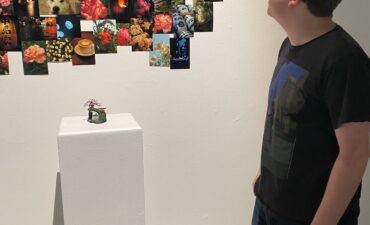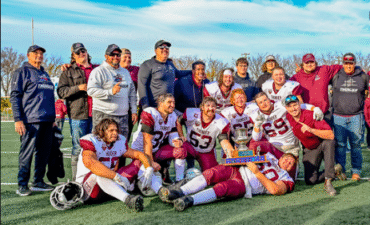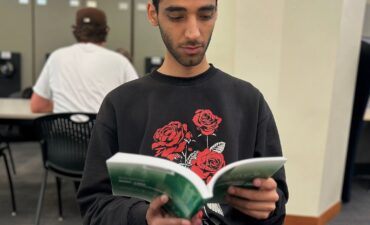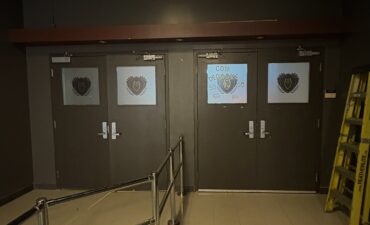
The Cowessess (COW-A-SIS) Community Educational Centre (CCEC) has a unique aura about it.
Whether it’s the feeling of a unified family atmosphere or the students receiving educational instruction tailored to their specific needs, there is something special about the CCEC.
Upon walking into the centre, one gets a true sense of family. The rotunda is decorated with beautiful Indigenous art pieces with a plaque displaying the names of the artists who contributed their work to the rotunda. To the right several tables comprise the lunch area and there is a hallway leading to the grade 9 to 12 classrooms. To the left is a hallway leading to the kindergarten to grade 8 classrooms. The centre even has its own dentist and certified mental health therapist, so the community vibes are ever present.
The student body at the CCEC is in good hands, as the faculty at the school and educational leaders outside the school have their best interests in mind. Cowessess Education Director Sandy Pinay-Schindler had this to say about the centre; “It’s almost like a spiritual aspect (when it comes to Cowessess). You know what you’re doing matters, the teachers and staff feel what they do makes an incredible difference. The support for the youth in this community is top notch.”
The CCEC is a Following Their Voices school, which means that the type of education the students receive is based on what the students, parents and school staff deemed to be most important and beneficial to their learning as Indigenous children. Examples of this unique type of education are evidenced in some of the classes offered up at the CCEC, such as: Cree; Treaties and the Law; Wildlife; and Learning on the Land. Pinay-Schindler also mentioned that many of the teachers at the CCEC are from in and around the Cowessess community so the students can look up to the staff members as role models and success stories.
A prime example of a local role model for the children is none other than the principal of the CCEC, Jonathan Kaiswatum. Kaiswatum graduated from CCEC in 2004, went away from Cowessess to obtain a degree in education at the University of Saskatchewan, and in 2017 was hired for the principal position at the centre after honing his skills as a classroom teacher at a neighbouring reserve for five years.
Kaiswatum said his role as a principal is quite different than that of a principal in a provincial system.
“You’re dealing with a lot of inter-generational trauma and mistrust in institutions in education and that’s just because of residential schools, so the role of principal is not only to be an instructional leader but also to be a manager of a lot of stuff,” he said.
Kaiswatum coaches the senior boys volleyball team and strives to be a role model for the students. This is evidenced in the time he takes to have conversations with the students, having been in their shoes and being a community success story for earning his education degree.
“I want them to know that it is possible because I know that there’s a reputation that First Nation Schools aren’t up to par with provincial schools,” Kaiswatum said. “Just because we’re underfunded doesn’t mean we have to underachieve.”
Although there may be a stigma about better education being available in a provincial system school than in a First Nations school, with staff and administrators such as Kaiswatum and Pinay-Schindler working tirelessly for the well-being of the youth in Cowessess, the student body of the CCEC is set up for just as much educational success as a student from Regina.
As for the issue of underfunding, Pinay-Schindler says it is all about being smart with the funds provided.
“We have a career coach for CCEC students, to provide them with opportunities to explore what they might want to do after Grade 12,” she said.
If the students are not interested in pursuing a university education there are opportunities for employment within the community identified by the labour force development. This all harkens back to the idea of “following their voices,” because the students are consulted and provided opportunities to hone in on their particular skill sets and decide what they would like to do as a career.















